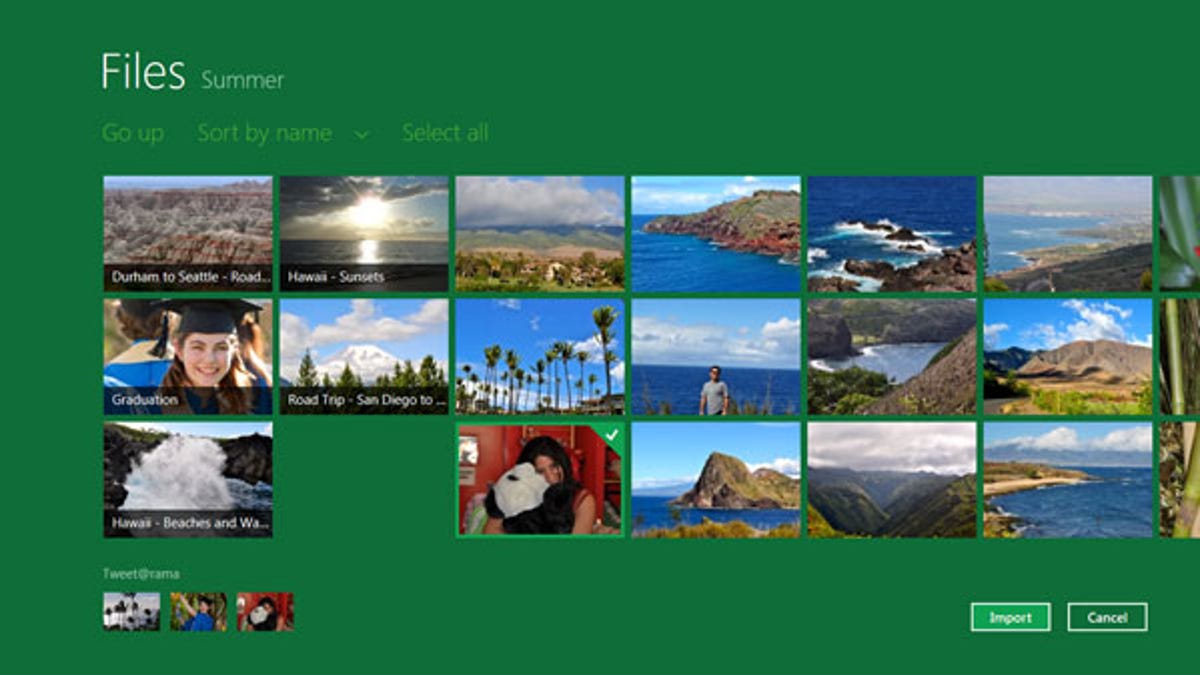Coming in 2012: Firefox for Windows 8's Metro
Mozilla plans to release a beta version this year for Microsoft's upcoming Windows interface. It'll be a lot of work, but Mozilla doesn't really have a choice.

Mozilla plans to release a concept version of Firefox for Windows 8's new Metro interface in the second quarter with alpha and beta versions to follow in the second half of 2012.
Mozilla announced the Firefox for Metro project in conjunction with its 2012 strategy documentation deluge.
Metro is a new user interface that replaces the Windows start button and menu with a grid of tiles. Those tiles launch software, but when they're on people's home screens they also can display anything from photos to message notifications. Deeper down, Metro comes with an entirely new set of programming interfaces called WinRT that mark a big departure from the last several years of software development on Windows.
"The feature goal here is a new Gecko-based browser built for and integrated with the Metro environment," Mozilla's planning document said, referring to the Firefox browser engine. "Firefox on Metro, like all other Metro apps will be full screen, focused on touch interactions, and connected to the rest of the Metro environment through Windows 8 contracts," a mechanism by which one app can hand off tasks--opening a Web page or sharing a photo, for example--to another app.
Windows 8 also offers a "classic" interface for old-style apps, and Mozilla expects supporting it will be a simple update to Firefox. But supporting classic only would mean that Firefox won't run when people are using Metro, which Microsoft is billing as core to its future.
It'll be work to port Firefox to Metro, but it beats the alternative: being sidelined. Mozilla has had a rough time expanding to new operating systems.
First, Apple only permits browsers that use its own WebKit browser engine that comes with iOS, ruling out Firefox's Gecko-based software. Mozilla's first mobile operating systems for mobile Firefox were designed for Meego, which Nokia has dumped, and Windows Mobile, a commercial failure that has been replaced by the Windows Phone.
Mozilla therefore is pinning its mobile hopes on Android, Google's mobile operating system that is fully open to others' browsers. But even as Firefox is in the midst of a very disruptive "reboot" designed to speed up Firefox by using native Android interface abilities, Google just launched Chrome for Android.
Even though Windows Phone cosmetically looks similar to the forthcoming Windows 8, with the bright-colored tiles, it uses a different programming approach that relies on Microsoft's Silverlight programming foundation or on a related technology called XAML, short for Extensible Application Markup Language.
Greg Sullivan, senior product manager for Windows Phone 7, said last year that Microsoft doesn't bar other browsers from Windows Phone but that the Microsoft's requirements make it unlikely Firefox would appear.
"If you can write a browser in Silverlight or XAML, you could submit it to the market," Sullivan told CNET in an interview.
Firefox uses lower-level software that runs natively on a mobile phone's processor, though, and Sullivan said Microsoft has no plans to offer a native development kit the way Google has with Android. "We think our development platform and tools are a key strength of the platform," Sullivan said.
But the door is open on personal computers. With Windows 8, Microsoft's developer tools will let Mozilla and others write Metro apps that run using lower-level native software.
On PCs, where the vast majority of browsing today still takes place, Windows 8 will come with Internet Explorer 10--both classic and Metro incarnations.
Metro is very important to Microsoft's future. Most obviously, it's a radical revamp of an operating system used by hundreds of millions of people but that's under threat from iOS, Android, and Mac OS X. One key feature to Metro is a "touch-first" interface priority that's crucial to Windows' success on tablets.
More subtly, Metro is key to Microsoft's expansion to ARM processors from its current x86-only world. That's tricky, though, since ARM processor designs are different when they actually arrive in processors from companies such as Qualcomm, Texas Instruments, Nvidia, Apple, and Samsung. Old-style x86 apps for Windows won't run on ARM devices unless those apps are painstakingly rewritten, but Metro apps bring cross-platform advantages to programmers wanting to span both hardware designs.
Programmers at Mozilla and elsewhere will know a lot more about Metro on February 29 when Microsoft debuts the "consumer preview" of Windows 8, which ordinary folks probably can safely think of as a beta version.

